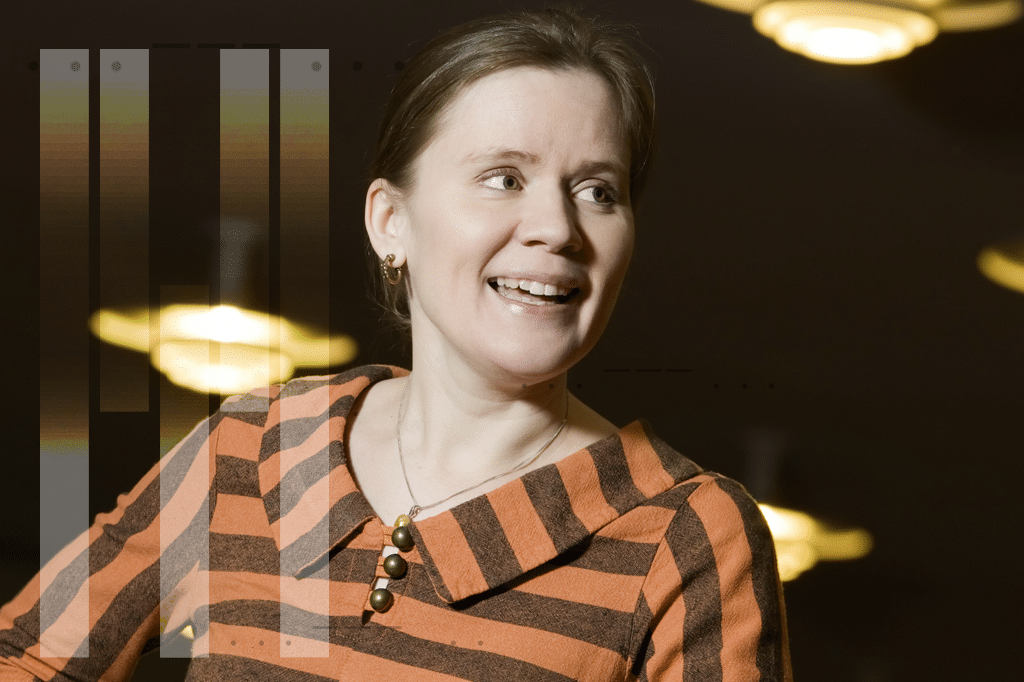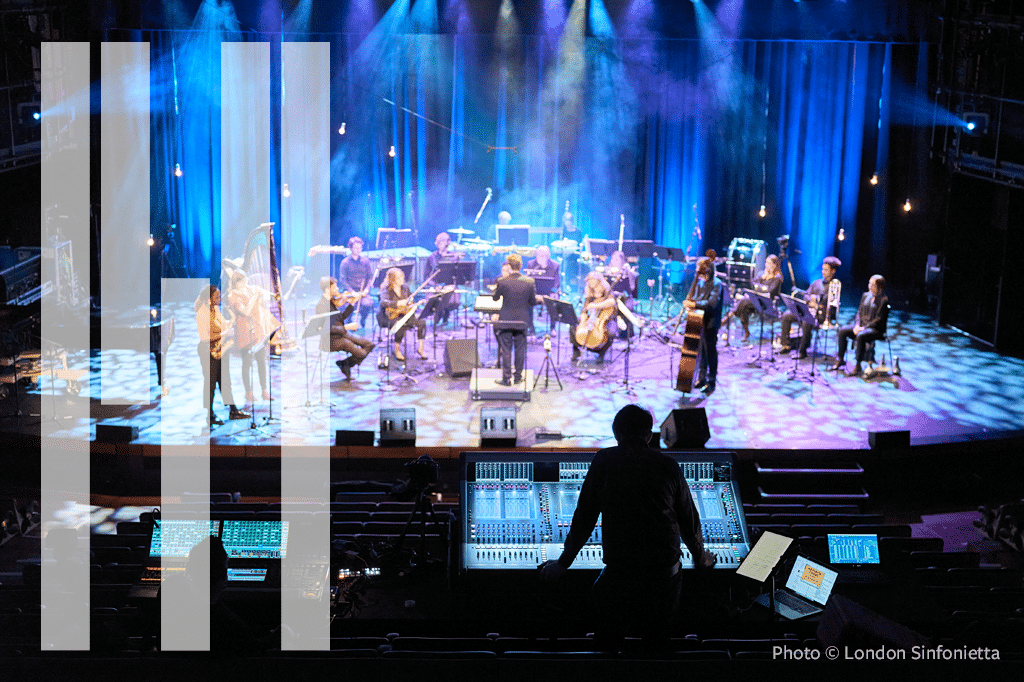
Composer Riikka Talvitie thinks about the influencing possibilities of arts and wants to break the boundaries between different fields.
The goal of Green Tress, which operates in the Kurdish region of northeastern Syria, is to plant four million trees over five years and significantly increase the area of green spaces. The citizens’ initiative, started by volunteers in October 2020, also works boldly at the border of art and science.
Can a composition take a political stance?
This article is essentially related to my new piece Green Tress, which will be premiered at Time of Music festival in Viitasaari. It is part of the project “21st Century Voices/Voices reimagined” of Time of Music and Huddesfield Contemporary Music Festival.
The project includes six contemporary composers: American Tyshawn Sorey, Ukrainian Anna Korsun, British-Rwandan Auclair, Swiss-Nigerian Charles Uzor, British Mariam Rezaei and me from Finland. Our new works comment on the song cycle Voices composed by the German composer Hans-Werner Henze in the 1970s. Voices consists of 22 political songs. New pieces are co-commissioned by Time of Music and Huddersfield Contemporary Music Festival. They are part of the Sounds Now project funded by the EU’s Creative Europe programme, and will be performed by the London Sinfonietta later in Huddersfield and London’s South Bank Centre.
My new piece should take a stand on one of the burning political questions of contemporary society. But is this even possible for a piece of music? How can a composer act politically?
Next, I will tell you about the backgrounds and collaborators of the Green Tress tree planting project, which acts as the starting point of my work. I wanted to focus my politics on global ecological issues. I chose this project because I see similarities in its emancipatory and ecological attitude with such critical art-making practices, which I am extremely interested in. The article is an essential part of the piece Green Tress performed during Time of Music in Viitasaari. Only these two elements together can constitute a political act.
Writing in connection with composing is also a kind of taboo. Among contemporary composers (at least in Finland) we are used to thinking that music should be enough as it is, without explanatory text or other material. I want to defy this view by writing a long and thorough text alongside my composition.

London Sinfonietta performs Riikka Talvitie’s work in the opening concert of Time of Music
The war accelerates the destruction of environment in Syria
During the last ten years, Syria has been hit by many humanitarian and ecological disasters.
In March 2011, the civil war in Syria began as a rebellion against the government of Bashar al-Assad and has continued ever since. In 2014, the battle to defeat the Isis organization escalated, increasing the participants in the war, and expanding the conflict internationally. As a result of the war, several hundreds of thousands of people have been killed or wounded, and more than 12 million Syrians have had to flee their homes either inside the country or abroad.
In addition to humanitarian problems, the effects of war can also be seen in the destruction of nature and the environment. Rivers, groundwater and wells are polluted in many places, and the soil has dried up and impoverished.
The social and health consequences of these devastations constantly affect the well-being of the local population. There is a shortage of drinking water and respiratory diseases and cancers have increased.
However, Syria’s drought problems began long before the wars. More than a century ago, forests covered 15-32 percent of Syria’s land. Today, only about 2.6 percent of the land area is forested, and even the majority of this is located in cooler and rainier coastal areas. Many studies have found that the exceptional drought that afflicted the country between 2007 and 2010 was one of the factors that triggered the civil war. In addition to climate change, the drought was caused by the Syrian government’s agricultural policy, which resulted in the depletion of groundwater reserves. (PNAS 2015)
A recent study, Axed & Burned (2023), examines the environmental effects of deforestation caused by the post-2011 conflicts in Syria. Using satellite images, public data and field work, the research report has attempted to map the extent of deforestation by region and analyze how the war has led to widespread logging and the destruction of forest land. The report also considers how these consequences affect the lives and livelihoods of Syrian communities.
There are several reasons for the loss of forests and the drying up of the land in war zones. Armed conflicts have caused environmental damage through attacks on industrial plants, oil refineries and critical infrastructure such as water and sewage systems.
In military operations, forests have been cut down to clear firing lines and establish military positions. In addition to the fact that forests have been destroyed in battles due to explosives and forest fires, they have also been deliberately burned as a strategy for warfare.
Throughout the war, the lack of fuel and the rise in energy prices have increased the need for firewood used for heating and cooking. In addition, charcoal production has become the primary source of heating in many areas. In general, wildfires have increased throughout Syria. The conflicts have significantly weakened the Syrian government’s ability to monitor and enforce forest management regulations.
In addition to the war, many other actions aimed at nature and the environment have also contributed to the desertification of the environment, the drying up of waterways and air pollution. Especially in the Kurdish regions of northeastern Syria, the oil industry has significantly polluted the soil and groundwater. The region also suffers from a serious lack of water, as stated in the Pax research report War, waste, and polluted pastures (2021).
Green Tress helps by volunteering and restoring

Tree seedlings of the Green Tress project. Photo: Green Tress
Research reports show that environmental restoration is essential for future generations to build a functioning post-conflict society. Climate change, for its part, strengthens these demands set by nature.
Green Tress (in Kurdish Kezîyên Kesk, in French Les Tresses Vertes) is one of many environmental restoration projects. The name of the campaign, green braids, refers to the significant role of women in the protection of the regions of northeastern Syria.
The project is a citizen’s initiative carried out by volunteers, the goal of which is to plant four million trees in the area of northern Syria and increase citizens’ awareness of environmental issues.
In 2020, when the project started, only 1.5% of the area of northeastern Syria was green areas. With the help of the project, the aim is to increase the surface area to 10–18 percent, which corresponds to the average amount of green areas worldwide. (Reporterre 2022)
The project has three phases. First, tree seedlings are seeded in several different greenhouses, some of which operate in connection with the University of Rojava.
After this, the tree seedlings are planted in different parts of the Rojava region. Decisions about suitable forest areas are made together with municipal actors. Volunteers participating in tree planting workshops are of all ages and from different professional backgrounds. There are also school classes and students.
In the third phase, the growth of the tree seedlings is monitored and supported where possible. The cooperation with the University of Rojava has enabled a research approach at the core of the project and through that the project has also gained international contacts. (Hunt 2021)
In November 2022, Green Tress project received Danielle Mitterand Foundation Award, which was given to “Builders of Utopias in Northern and Eastern Syria”. In this Kurdish ecological revolution, respect for biodiversity is combined with the region’s political and ecological goals.
Guerilla – a laboratory for learning and freedom

A view of Guerilla University meeting in autumn 2020. Photo: Phd in One Night
Background images by https://dejanasekulic.com/works/wmtwslatl.html
I met one of the founding members of Green Tress, the literary researcher Gulistan Sido in October 2020. That was when a collective laboratory named Guerilla University was launched remotely, the idea of which was to bring researchers and artists from different fields together to discuss new kinds of radical and innovative ways of learning.
Sido was working at the University of Rojava at the time, but has since started her postgraduate studies in Paris. She studies representations of cultural identity and otherness in Kurdish oral tradition and literature.
The initiator of Guerilla University is ex-Yugoslav playwright, translator, journalist Ivana Momčilović, who lives in Belgium, and her collective Phd in One Night, which she launched in 2007.
Guerilla University is a platform for common learning about freedom. It is based on moments, coincidences, interruptions, rewrites, failures and rests in the poetic, political and aesthetic possibilities of incompleteness.
“Unlearning and gardening as art are its ideal forms. The garden, as a laboratory, poses the hypothesis of a new reconfiguration of the world, of the possible and the impossible, a new relationship between man and society, as well as the relationship between man and nature”, Momčilović writes.
Green Tress’ partner, University of Rojava, was born in the middle of the war
Green Tress operates in The Autonomous Administration of North and East Syria, better known by the Kurdish name Rojava.
The Rojava revolution that started in 2012 launched a democratic autonomy project, as a result of which three provinces mainly inhabited by Kurds declared themselves independent from the Syrian government. After the collapse of the state administration in 2014, a new kind of democratic governance system has been created in the region, based on grassroots local participation, gender equality and ecological values.
The region of Rojava is ethnically and religiously very diverse. For the development of democracy in the region, it has been important to bring the local population together and create a system where the different participants could find an understanding for negotiation.
One of the partners of the Green Tress project, Rojava University, was founded in Kamishli in 2016 in the middle of the war. The university is one manifestation of the goals set by the Rojava revolution regarding Kurdish-language education, and it shares the self-governing region’s basic values of ecological life, democratic society, and women’s freedom.
The rest of the world remembers Rojava region for how the armed YPG forces, as close allies of the United States, finally defeated the extremist organization ISIS. The administration of Rojava still bears responsibility for the region’s refugee camps and imprisoned ISIS fighters.
Although the development and clarification of self-government has brought stability to the region’s political structures, the autonomous Kurdish region’s cooperation with Turkey has clearly become more difficult since the outbreak of the peaceful revolution. The environment has also faced serious challenges. Turkey has targeted northern Syria with several military operations, which have had harmful consequences for the environment. In particular, the Turkish-controlled Afrin district has seen massive logging of olive trees since 2018.

Philosopher Jacques Rancière has been involved in the collaboration, sparking discussions about gardening, emancipation and the drought in Syria. Gulistan Sido on the left. Photo: PhD in One Night
Water as a tool of warfare
IN RECENT YEARS, the water crisis has become a central problem in the Rojava region. In addition to the drought, the crisis is exacerbated by Turkey’s water policy and the destruction and interruptions caused by Turkey and the fighters it supports at the region’s most important water intake in Alouk. Turkey retains water in the dams it has built, and the water of the Euphrates cannot flow sufficiently to the Syrian side. (Ulvila 2021)
In the article published in the magazine Syria Direct, it is stated that the consequences caused by damming have been very difficult to verify, because due to the war situation, measured research evidence on the flow of water is hardly available in the northern parts of Syria. According to various estimates, the flow would have decreased by either 40 or 60 percent. According to the agreement signed by Turkey and Syria in 1987, Turkey should discharge water from the Euphrates River at a minimum of 500 cubic meters per second. Turkey has not complied with this agreement. The administration of Rojava has appealed to international organizations to comply with international water law. (Sido 2021)
Environmental warfare refers to a strategy of military operations in which the other party is intentionally harmed by destroying or affecting the environment.
Can a militarily stronger state regulate water so that a militarily weaker region or state geographically located downstream of the water dries up as a result of the regulation and this causes both humanitarian and ecological problems? Where is the line between politics and ecological warfare?
This is where my understanding ends.
I open Google Earth. With a quick glance, I can see that the grass looks greener on the other side of the fence – in Turkey.
In the middle of crises, new ways of seeing and doing are needed
When I participated in the gatherings of Guerilla University, my interest was particularly focused on such proposals and experiments, in which an attempt is made to do familiar things in a radically different way.
In science and art, this can mean, for example, breaking the boundaries of different disciplines and examining things from a new perspective. An aesthetic approach can also produce new knowledge.
There is a particular need for such fresh openings in politics. In a world of global crises, we should urgently create new world orders and ways to coexist with each other and nature.
In Finnish public media, the political and ecological situation of the Rojava region has been covered remarkably little. News coverage has mainly focused on acute conflicts. The Kurdish minority living in Finland is small, and research on the Near East is not yet very extensive. Information about the new kind of grassroots democratic order can be read mostly in the reports of peace organizations and left-wing activists.
Bierbai’s olive tree continues as a composition in Viitasaari
As a symbolic radical gesture of peace, the delegation of Green Tress planted a (Kurdish) olive tree in Bierbais’ garden in Brussels in May 2022. I will continue this gesture of peace in the form of Green Tress composition performed in Time of Music.
In many contexts, Rojava’s model of a new kind of democratic thinking is described as utopian. For example, Helsingin Sanomat (21.10.2019) states that the area “has sometimes been portrayed in the media as a kind of romantic and feminist revolutionary utopia”.
Because I have some feminism and activism hidden inside me, I believe in that utopia. Planting trees in the middle of all the conflicts is, in my opinion, a clear indication of the positive consequences of the critical thinking behind it. Isn’t a touch of utopia needed in life as well as in art?
I would like to thank Middle East researcher Anu Leinonen for a fruitful discussion on the subject and composer Stephen James Webb for his important help in the composition phase of the piece.
The spokesperson of Green Tress Ziwar Shekho talks about the background and goals of the project.
Writer: Riikka Talvitie, composer, June 21, 2023
Riikka Talvitie’s work Green Tress will be premiered in the opening concert of Time of Music. 21st Century Voices I concert at Viitasaari Areena on 4th of July at 7:00 pm.
